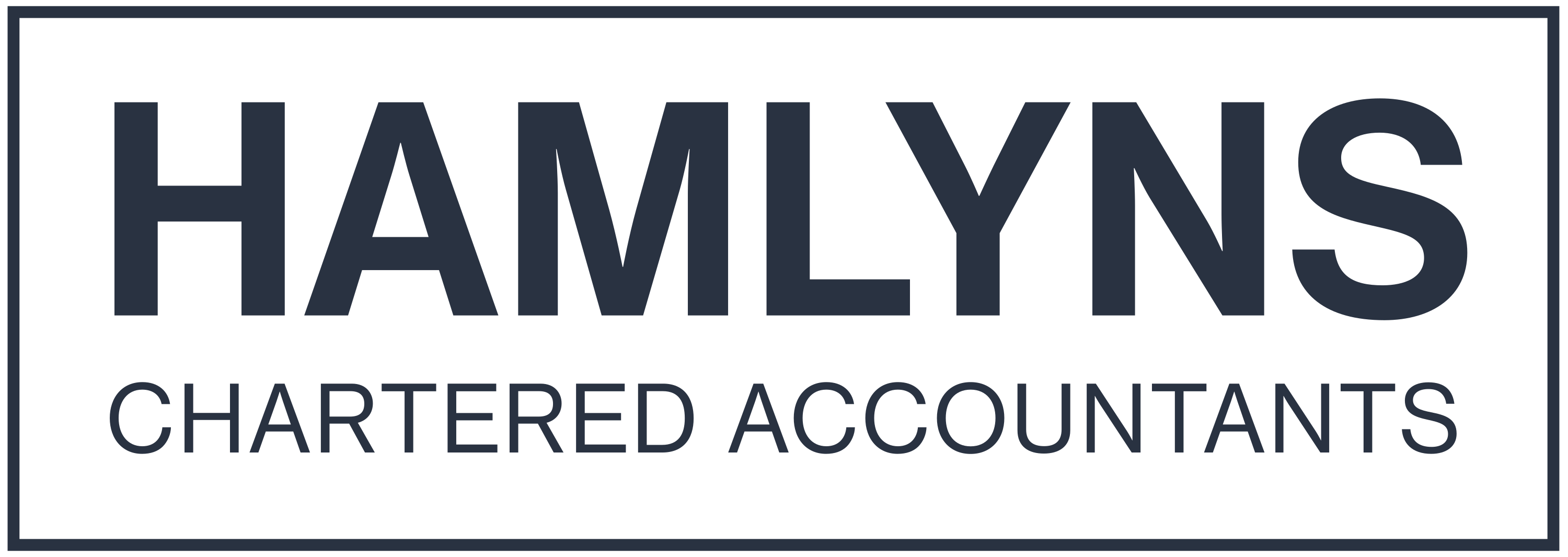Everything You Need to Know About Preparing for a PAYE or VAT Visit

Everything You Need to Know About Preparing for a PAYE or VAT Visit
If your business receives a notification that HMRC will be conducting a review or inspection of your PAYE or VAT records, it’s understandable if this can make you feel a little uneasy. You may wonder what has prompted such an inspection from HMRC and what is involved, which alone can be quite stress-inducing.
However, provided that everything is above board, you have nothing to worry about. Thorough preparation and organisation can help make the process go smoothly and without causing interruptions or disruption to your business operations.
This short guide will walk you through everything you need to do to get ready for an HMRC tax inspection.
What Triggers a PAYE or VAT Inspection?
There are a few common reasons why HMRC may want to review your tax records:
- Routine inspection – All businesses can expect occasional routine PAYE or VAT reviews, even with no specific concerns. These can happen at random and therefore may not be inherently triggered by anything you have done specifically.
- Follow-up visit – If minor issues were found in a previous inspection, HMRC may do a follow-up visit to ensure any action points have been taken or advice followed.
- Significant changes – Major changes like rapid business growth or new ownership can prompt HMRC to verify records are accurate.
- Concerns raised – If HMRC receives information that records may be inaccurate, they may send a representative to conduct a routine investigation to confirm any anomalies.
- Tax return discrepancies – Any errors or inconsistencies in submitted tax returns can lead to an inspection.
How Much Advance Warning Do You Get?
For a routine PAYE or VAT inspection, HMRC will typically give at least 30 days advance notice to give you ample preparation time. However, follow-up visits may be announced with shorter notice, so it’s always smart to be prepared for an impromptu visit just in case.
Who Will Conduct the Inspection?
Most commonly, it will be an Assurance Officer or Inspector of Taxes from HMRC. They will typically contact you first by letter or phone to ensure that you are aware of who exactly will be visiting. All HMRC employees should provide a copy of their ID badge when visiting.
What Will Be Inspected in a PAYE Review?
A PAYE (Pay As You Earn) inspection focuses on whether your business is complying with relevant PAYE requirements.
Some specific aspects reviewed include:
- Employee PAYE records
- Submission and payroll balancing
- PAYE settlement agreements for BIK (benefits-in-kind)
- CIS (Construction Industry Scheme) records and compliance
- Expense payments
- Directors’ records and remuneration
- Tax code notices and changes
What Will Be Inspected in a VAT Review?
During a VAT inspection, HMRC will want to confirm your VAT accounting is done properly. Luckily, with the help of MTD (Making Tax Digital), all VAT-registered businesses can submit VAT returns digitally rather than using the HMRC portal.
However, sometimes HMRC can intervene if they suspect that something that’s been submitted is amiss. The areas often looked at include:
- VAT records – Do sales and purchase records match VAT returns?
- VAT payments – Evidence that VAT payments align with VAT due.
- VAT schemes – Correct use of any applicable VAT schemes like flat rate, margin, etc.
- Partial exemption – Correctly applying partial exemption rules if relevant.
- Evidence for zero-rating – Adequate proof that zero-rated or exempt supplies apply.
- VAT registration – Business activity matches the information given at registration.
What Records Should You Have Ready?
It should go without saying that thorough preparation and record-keeping are crucial to ensuring compliance and getting through the HMRC inspection process. Ultimately, making the process as quick, non-invasive and non-disruptive as possible will involve you having the following documentation on hand ready to review if needed:
- PAYE/VAT returns – Have printouts or digital copies available for the review period.
- Accounting records – Invoices, bills, bank statements, management accounts, etc.
- PAYE calculations – Employee payroll records, P11/P60 forms.
- HMRC notices – Any tax code change or payment notices from HMRC.
- Previous inspections – Printouts of any previous submissions, returns or correspondence with HMRC related to reviews.
Having organised records close at hand shows professionalism and cooperation.
However, to ensure that no stone is left unturned and to minimise the amount of HMRC intervention required, it’s always wise to consult with a professional accounting and bookkeeping company that can constantly keep on top of all your finances. Liaise with your in-house or outsourced bookkeeper and accountant to ensure that all finances align and your business is above board.
What is the Inspection Process?
The typical stages in a PAYE or VAT inspection are:
- Notification – You receive an initial notice of the upcoming visit.
- Information request – HMRC may request certain records or documents to be reviewed in advance.
- Site inspection – The tax officer visits your premises and examines records first-hand.
- Review findings – HMRC collates findings and you can discuss any discrepancies noted.
- Inspection report – You receive a formal report summarising the findings.
- Follow up – If any errors are found, you may have to submit corrected returns or make additional tax payments.
Following an investigation, HMRC will clearly outline the next steps that you must take, depending on their findings. This can be anything from arranging a follow-up investigation to getting third-party intervention.
How to Avoid PAYE or VAT Issues in HMRC Reviews
To reduce the chances of problems arising and the need for HMRC to get involved, it’s prudent to do the following regularly:
- Maintain immaculate record-keeping and have systems to monitor accuracy.
- Ensure accounts software is configured properly and makes tax submissions reliably.
- Provide regular training on PAYE/VAT compliance for staff involved with finances or payroll.
- Conduct periodic internal reviews of calculations and returns prior to submission.
- Flag up any suspected errors to HMRC early via voluntary disclosure.
- Follow up on any recommendations from previous visits.
- Regularly liaise with your chosen accounting and bookkeeping provider to ensure any issues are flagged early.
Get Help Preparing from Tax Experts
If you need assistance getting organised for an upcoming HMRC review, a proactive, experienced and business-minded accountant can help you put everything in order, whatever your circumstances.
From conducting internal audits to advice on the best record-keeping practices, expert support gives you confidence going into a tax inspection.
At Hamlyns, our business tax and finance advisors have extensive experience assisting clients through PAYE and VAT reviews. We can double-check that your records are inspection-ready, provide training on compliance, and help address any issues raised by HMRC. Contact us today to arrange a consultation before your next tax visit.

Patrick Collins
Tax Director





